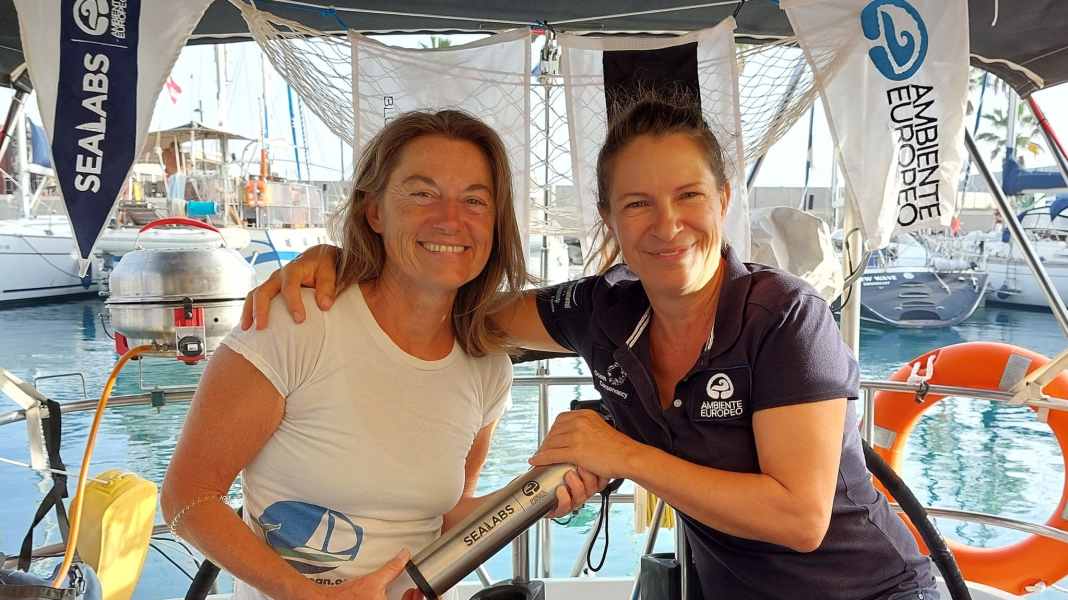Environment: Spanish marine conservation project wins Ocean Tribute Award 2025
YACHT-Redaktion
· 22.01.2025

SeaLabs is a so-called citizen science programme in which sailors in particular are to take part, setting course for remote areas of the world. There they will take water samples and analyse them with the help of a laboratory set provided. The data collected in this way is then used to draw the attention of decision-makers in politics and business to the problematic situation of the oceans.
"Oceans are barometers for the health of our planet"
Luise Wagner accepted the Ocean Tribute Award on behalf of the initiative at the official award ceremony. This was performed by British professional sailor Dee Caffari. She said: "The ocean is a barometer for the health of our planet. To understand this, we need data that we can use to educate and inform key decision makers about policy changes and their impacts. Without evidence, it is difficult to change behaviours and attitudes. The valuable work of our awardees allows us to gather this important data and effect change for the better. Citizen science enables a much wider reach and hopefully faster change for the better."
Dee Caffari herself has already sailed around the world six times. In 2006, she was the first woman to sail around the world non-stop from east to west against the prevailing winds as a single-handed sailor. For this achievement, she was awarded the title Member of the Order of the British Empire in her home country.
"Orientation towards the sustainability goals of the United Nations"
boot Director Petros Michelidakis emphasised: "Our oceans are not only essential for the ecological balance, but also for the global climate. With the Ocean Tribute Award, we want to gain further supporters for this important cause. In doing so, we are aligning ourselves with the sustainability goals of the United Nations. Our aim is to protect the oceans, seas and their resources and to restore destroyed habitats in the interests of sustainable development."
With the initiation of the award in 2017, the Monegasque "Prince Albert II" Foundation, the German Marine Foundation and boot Düsseldorf have set themselves a clear guideline: To support people, projects or initiatives in their commitment to marine conservation. Since 2018, the prize, which is endowed with 20,000 euros, has been awarded annually as part of the blue motion night.
"Significant civil society commitment to research"
Frank Schweikert, Chairman of the German Ocean Foundation, congratulated: "Congratulations to Ambiente Europeo and their important commitment to marine conservation, which impressively demonstrates how important our civil society commitment to research is".
About the SeaLabs project:
With SeaLabs, sailors can collect important marine data in remote areas and turn every trip into a research expedition. To this end, the organisation equips participants with affordable sensor technology and an intuitive app and uses the potential of the sailing community to obtain large data sets.
Together, the resulting open-source database is intended to provide a clearer picture of the state of the oceans in order to provide policymakers with information to protect marine life, food sources and the environment. SeaLabs involves citizens in the practical scientific collection of marine data, so that volunteers not only become companions of the marine environment, but also develop an awareness of the issues through their involvement.
Cooperation with communities, sailing organisations and educational institutions
They play a central role both by contributing to a database that provides information to policy makers and by expanding communication about the state of our oceans. By working with local communities, sailing organisations and educational institutions, the Spanish-based organisation builds partnerships that foster a collective commitment to protecting the oceans.
Ambiente Europeo would like to use the prize money to realise a sensor update, complete seaworthy accommodation and dedicate itself to expanding the community.

